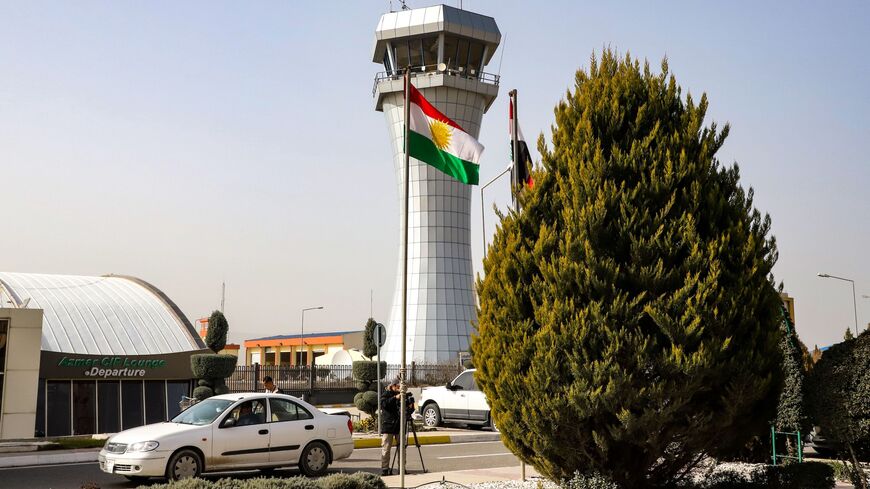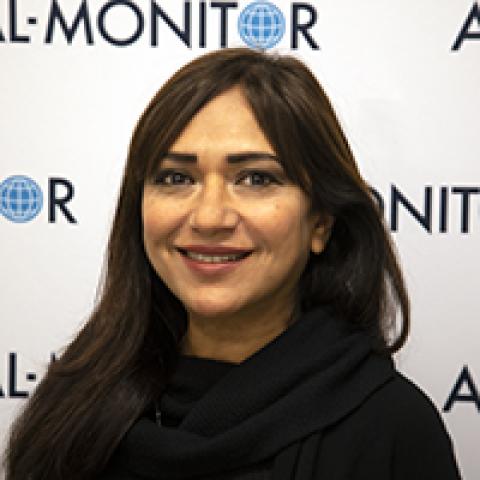Turkey on Monday extended a flight ban to Iraqi Kurdistan’s Sulaimaniyah International Airport for six months, Kurdistan Regional Government (KRG) officials confirmed, in a move that will further squeeze the region’s economy and physically isolate it from the West. The extension was first reported by the Iraqi Kurdish news outlet Rudaw, citing officials from Turkey’s national carrier, Turkish Airlines.
The initial ban was announced in April and imposed for three months on the grounds that the airport had become a hub for activities of the outlawed Kurdistan Workers Party (PKK). The Turkish Kurdish group, whose top commanders are based in Iraqi Kurdistan, has been orchestrating its armed campaign against the Turkish military from the Iraq-Iran border since the early 1990s.
Sulaimaniyah is under the control of the Patriotic Union of Kurdistan (PUK), the second most influential party in the Kurdistan Region of Iraq, which has traditionally enjoyed close ties with the PKK. Qubad Talabani, whose older brother Bafel runs the PUK, traveled to Ankara in April in a bid to appease Ankara, but apparently to little effect. The PUK is clearly not living up to Ankara’s expectations to restrict and provide actionable intelligence on the PKK’s activities in the Sulaimaniyah region.
The Kurdistan Democratic Party (KDP), which leads the KRG, is, on the other hand, closely allied with Turkey and supports its ongoing military campaign against the PKK. Thousands of Turkish troops are deployed across KDP-held territory close to the Turkish border where the bulk of the rebels are based. Officials of the Syrian Democratic Forces (SDF) are not permitted to use the Erbil airport to travel abroad in keeping with Ankara’s wishes. KRG Prime Minister Masrour Barzani, whose father, Massoud, leads the KDP, became the first foreign dignitary to pay Turkish President Recep Tayyip Erdogan a formal visit following his election victory in May.
Ankara insists that the Sulaimaniyah airport has been used to smuggle in weapons destined for the rebels, who used it to travel between Iraq and the outside world. The airport was also used by officials from the US-backed Kurdish administration in northeast Syria, notably Mazlum Kobane, commander in chief of the SDF. The Kurdish-led force is the United States’ main ally in the ongoing campaign to degrade and destroy the Islamic State in northeast Syria. Turkey says that the SDF is part of the broader PKK network and is demanding that the United States scotch its partnership with the group.
In April, Turkey targeted Kobane and his convoy, which was also carrying US military officials, near the Sulaimaniyah airport in a drone strike just days after sealing its airspace to flights bound to and from there. Kobane had just returned from a trip to the United Arab Emirates to lobby for its support, as first reported by Al-Monitor. Kobane has kept a low profile ever since, and security measures in northeast Syria have been tightened dramatically. Yet Turkey continues to pick off SDF and PKK-linked individuals in drone strikes both in Iraq and Syria. PKK-led groups are under stronger pressure than ever before, said a Western analyst who spoke anonymously to Al-Monitor following a recent trip to northeast Syria.
Bilal Wahab, a senior fellow at the Washington Institute for Near East Policy, views the continued ban as part of a broader trend whereby regional powers Turkey and Iran as well as the central government in Baghdad are engaging the PUK and KDP as individual actors rather than as representatives of a unified KRG — a trend that has been accelerated by the sharp divisions between the Iraqi Kurdish parties themselves. “The KRG as a unified governing entity is being undone. Part of it stems from the KDP-PUK divisions, which are inviting regional powers to deal with the PUK and the KDP separately,” Wahab told Al-Monitor. As such, the flight ban is a further example of Turkey having a KDP and a PUK policy, where one is punished and the other rewarded. “This also tracks with how Baghdad treats the KRG,” Wahab added.
Despite its close ties to the KDP, Turkey has failed to allow the resumption of Iraqi and Kurdish oil sales through a pipeline network that runs from KDP controlled territory to export terminals on its Mediterranean coast. Turkey sealed the line on March 25 after an international arbitration court ordered Turkey to pay Baghdad $1.5 billion in damages for enabling the KRG to sell its oil independently of Baghdad. The closure is costing the KRG an estimated $1 billion in monthly revenues that is used to pay 80% of public sector salaries. Turkey is holding out in a bid to pressure Baghdad to drop a separate arbitration case.








